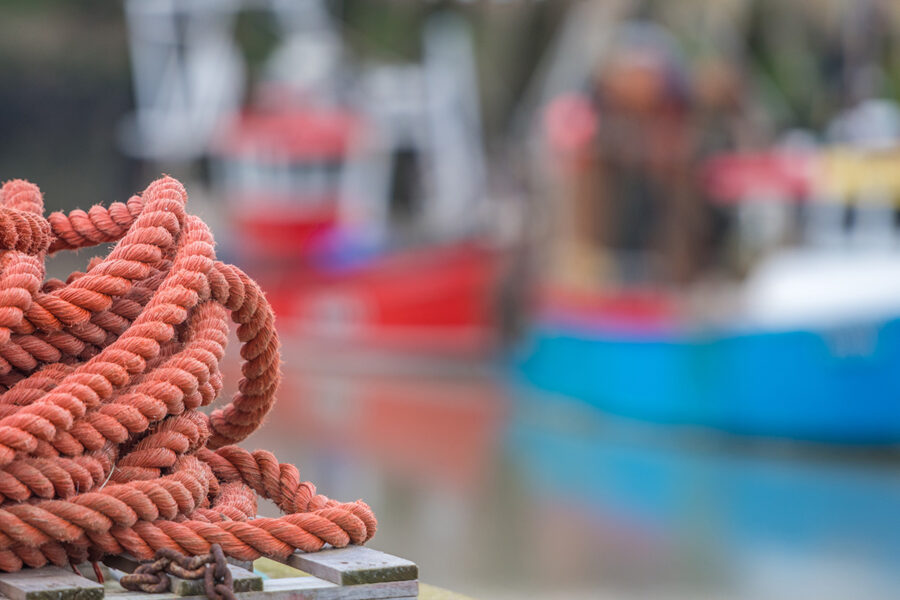The International Transport Workers’ Federation (ITF) has launched a new attack on the UK Nephrops fleet, claiming that Fisheries Improvement Projects (FIPs) are incapable of adequately addressing the rights of foreign crew working in the fleet.
It failed to mention the wider moves across the Nephrops sector, led by the Scottish White Fish Producers’ Association (SWFPA), to develop a more stringent, independently assessed crew welfare system.
The attack came after the ITF complained to the NGOs FishChoice and FisheryProgress, which maintain the worldwide Fisheries Improvement Plan database, that their assessments that fishermen’s rights were being met, as required by the FIP, were incorrect. FIPs are generally considered a route towards achieving Marine Stewardship Council approval, with the bulk of the assessment focusing on sustainable management of stocks and ecosystems – crew issues are a relatively recent addition to assessment of governance of a fishery.
The NGO Open Seas, which continues to push to get supermarkets to drop scampi from their shelves, was quick to come out in support of the complaint, although its initial campaign concentrated on what it claims are unsustainable bycatch and related issues in Nephrops fisheries. Other NGOs have been quick to jump on the bandwagon – none of them seemingly fact-checking the allegations made by the ITF.
“This case serves as a stark reminder that FIPs, despite well-intentioned efforts, are fundamentally inadequate in preventing and addressing labour abuses in fisheries. Indeed, they focus on the wrong level – the fishery – if they are going to detect problems that occur at the vessel or individual worker level,” Chris Williams of the ITF fisheries section wrote in an article for Seafood Source. “FishChoice and FisheryProgress recognised the ITF’s claims, confirming the presence of forced labour and human trafficking within the UK scampi FIP.”
The ITF claimed it had spoken to large numbers of the foreign crew working across the Nephrops fleet, and had documented 138 cases of ‘abuse’ across 62 vessels. However, much of this appears to be questionable. The cases of ‘contravention of the UK Nationalities and Border Act’ appear to be related to the discredited transit visa scheme that the UK industry has long lobbied to see changed, and one skipper told FN that from his experience, the 14 cases of ‘wage theft’ were due to agents abroad not passing on payments made by vessel owners.
“The crew we employ only ever want something like £50 a week paid when they are here, for small day to day expenses,” he said. “The bulk of their salaries are paid direct to their home country, where it can be accessed directly by the family. I’ve not had an issue with this for years, but did in the past, when agents were delaying passing on payments we’d made in good faith.”
A second skipper was more forthright. “I have had foreign crew for years without issue. Then we had one crewman over who only lasted three weeks. He was utterly useless, couldn’t do the job, and annoyed his fellow countrymen. He filed a series of complaints, including about ‘lack of food’, as soon as he was off the boat, and now we are labelled as ‘abusers’ as a result.”
Mike Park, chief executive of the SWFPA, which has developed a pilot project, on top of working with the Nephrops FIP, to develop independently verified crew welfare standards, said: “In all of the cases mentioned by the ITF, no further action was taken by the authorities. The FIPs themselves are not the best place to construct social policy, which in itself is a reasonably big task.
“There are, however, initiatives that benefit from social approaches and policy created and constructed elsewhere, such as the work between ITF, SWFPA, Focus on Labour Exploitation – a London-based NGO that advises on labour exploitation issues – and the Seafood Ethics Action Alliance, on the Fair Food Programme. Giving time to this, and working with the fishing sector rather than against it, would speed up the process of delivery.”
This story was taken from the latest issue of Fishing News. For more up-to-date and in-depth reports on the UK and Irish commercial fishing sector, subscribe to Fishing News here or buy the latest single issue for just £3.30 here.
Sign up to Fishing News’ FREE e-newsletter here.








